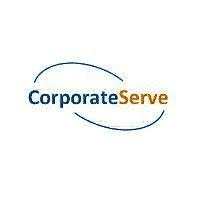Yes, SAP Partner can be accessed from multiple devices and platforms. As a cloud-based service, it is accessible from any internet-connected device, including laptops, tablets, and smartphones. It is also compatible with a variety of operating systems and browsers, providing a consistent experience across multiple platforms. This flexibility enables partners to remain engaged and productive whether they are in the office, on-site, or working remotely.
List of 20 Best SAP Partner
Smart Payables is a software for streamlining your SAP Accounts Payable process. Say goodbye to manual tasks and hello to efficiency with features like scanning, invoice posting, and workflow optimization. No extra hardware required, and you can be u...Read More Smart Payables
Bodhtree is a premier SAP partner renowned for providing customized solutions to businesses. Our in-depth knowledge and experience enable us to create and implement strategies that cater to specific industry and client requirements. We pride ourselve...Read More Bodhtree
BroadPoint Engage is a cloud-based solution designed to streamline business processes and enhance customer relationships. Specifically tailored for mid-sized companies, this all-in-one platform seamlessly integrates ERP and CRM functionalities, empow...Read More BroadPoint Engage
SAP Business One by Avaniko is a ERP solution designed to streamline all aspects of your business operations. With features such as sales and customer relationship management, reporting, and cost-effective solutions, SAP Business One caters to a wide...Read More Avaniko
Mindtree is a leading provider of cutting-edge IT services that enable businesses to thrive, lower costs, and generate additional revenue streams. Our expertise lies in crafting, planning, and executing advanced systems that propel growth and optimiz...Read More Mindtree
Octane HRMS, powered by Embee and built on SAP B1, is a solution designed to streamline and simplify HR processes. With its advanced features, managing employee onboarding becomes quick and effortless. Gain valuable insights and make data-driven deci...Read More Octane HRMS
Accel EXIM is a SAP solution to streamline and automate your global trade processes. Compliance with export-import regulations and simplification of documentation procedures are made easier with our advanced features. Experience the power of Accel EX...Read More Accelerated EXIM
Achieve IT Solutions, the top SAP ERP partner. Our extensive ERP applications improve workflow management and streamline tasks for your organization. With our solutions, efficiency is enhanced, allowing you to easily accomplish your objectives. Count...Read More Achieve IT Solutions
Arteria solution from a leading SAP ERP partner. This comprehensive software integrates multiple SAP modules to optimize your business processes and operations. With its revolutionary m-Dashboard feature, you can easily access data and reports from v...Read More Arteria
KAEM offers top-quality SAP Implementation Services to businesses seeking reliable and efficient solutions. Our skilled team provides end-to-end implementation services for all SAP modules and products, ensuring a seamless and prosperous implementati...Read More KAEM - SAP Implementation
KAEM - the leading provider of SAP Support. Our complete annual maintenance solutions for SAP are carefully designed to ensure smooth functioning of your business. Discover the efficiency of cutting-edge technology with our personalized support and s...Read More KAEM - SAP Support
Experience top-notch IT solutions with CorporateServe, an authorized channel partner of SAP, Microsoft, and Epicor for ERP implementation. For over 20 years, our highly esteemed organization in India has specialized in ERP implementations, providing...Read More CorporateServe
Vertonis is a source for all your SAP software needs. With our extensive range of services, we specialize in the implementation, support, and consultation of popular SAP applications such as SAP Hana, SAP Business One, SAP ALL IN ONE (SAP R/3), and S...Read More Vertonis
SAPs suite of enterprise mobility solutions enables employees, consumers, and stakeholders to have a seamless mobile experience. These innovative systems empower and engage individuals, resulting in optimized business processes and increased efficien...Read More SAP
Silver Touch SAP - a business management software specifically designed to enhance productivity and fuel profitable growth for businesses of all sizes. Its advanced automation and streamlined operations provide a comprehensive overview of all busines...Read More Silver Touch SAP
SAP Quotation Management allows you to boost your sales performance by efficiently generating and delivering precise sales quotations to your clients. Its advanced features help you stand out from your competitors, meet your sales targets, and impres...Read More Sap Quotation Management
Transform your business with the power of SAP by partnering with HCM Info System. As the leading SAP partner, our specialized business solutions guarantee success and client contentment. Count on our expertise to maximize your companys capabilities w...Read More HCM Info Systems
JKT is your go-to partner for all SAP-related requirements. Our proven expertise as an esteemed SAP ERP partner allows us to deliver tailor-made, high-quality services to boost your organizations efficiency. Leave behind any uncertainty and leverage...Read More JKT
SAP Business One by Squirrel Softech is a ERP solution for Manufacturing and Process Industries. Our team of skilled consultants offers industry-specific expertise to deliver tailor-made ERP consulting services. With PHP technology, our ERP solution...Read More Squirrel Softech
Accentures cutting-edge robotic process automation software that is transforming the business landscape. By utilizing its advanced tools, companies can streamline operations, boost efficiency, and reduce expenses. With its lightning-speed bot, the so...Read More Accenture
Learn More About SAP Partner
- What Is SAP Partner?
- What Are The Recent Trends In SAP Partner?
- Benefits Of Using SAP Partner
- Important Factors To Consider While Purchasing SAP Partner?
- What Are The Key Features To Look For In SAP Partner?
- Why Do Businesses Need SAP Partner?
- How Much Time Is Required To Implement SAP Partner?
- What Is The Level Of Customization Available In SAP Partner?
- Which Industries Can Benefit The Most From SAP Partner?
- Conclusion
What Is SAP Partner?
A SAP Partner is a firm or organization that has created a strategic agreement with SAP, a multinational software corporation, to offer specialized services and solutions to customers. These partners have substantial knowledge and experience deploying, configuring, and supporting SAP software, and they are allowed to resell SAP products and licenses. SAP partners are classified into three types: sell partners, service partners, and build partners.
Sell partners resell and distribute SAP products and licenses, whereas service partners provide consultation, implementation, and support to SAP customers. Build partners create and market add-ons, extensions, and complementary solutions that work with SAP software. SAP vets and certifies its partners to assure their expertise and service quality. To preserve their partnership status, they must meet severe requirements as well as receive frequent training and evaluation.
This ensures that customers obtain dependable, efficient, and high-quality services from these partners. Selecting a SAP Partner is critical for a successful SAP implementation and maximum return on investment. Partners provide deep insights and knowledge to assist businesses in selecting the appropriate SAP products and designing a tailored solution that meets their specific needs and objectives.
Some important elements to consider when choosing a SAP Partner include their industry expertise, experience, and customer references. Furthermore, it is critical to evaluate their availability, support skills, and pricing structures to ensure a smooth and cost-effective engagement. SAP Partners play an important role in keeping organizations up to date on the newest SAP innovations and updates. They offer crucial advice on upgrade strategy, the implementation of new technology, and continuous support for existing solutions.
What Are The Recent Trends In SAP Partner?
The SAP Partner ecosystem is always expanding, with new trends emerging to satisfy changing business needs and demands. As a prospective buyer, it is critical to stay current on the newest developments in order to make informed selections when hiring a SAP Partner.
1. Cloud Adoption: One of the most prominent developments in the SAP Partner environment is the growing use of cloud solutions. Businesses are seeing the advantages of transferring their operations to the cloud, such as cost savings, scalability, and flexibility. As a result, SAP Partners are expanding their cloud-based solutions and services to suit this growing demand.
2. Digital Transformation: As digital technologies advance, businesses must undergo digital transformations to remain competitive. This includes the adoption of new systems and procedures, which creates a greater demand for SAP Partners that can deliver digital transformation services.
3. Data Analytics: In today's data-driven environment, having real-time, reliable data is essential for making sound business decisions. SAP Partners now provide advanced data analytics solutions that use technologies such as artificial intelligence and machine learning to help businesses acquire important insights and stay ahead of the competition.
4. User Experience: User experience (UX) is becoming a significant differentiator for businesses, and SAP Partners are working to improve the end-user experience through their solutions. This includes enhancing the usability of ERP systems, including mobile-friendly interfaces, and applying design thinking principles.
5. Industry-Specific Solutions: Today, businesses choose specialized, industry-specific solutions over generic ones. SAP Partners now provide industry-specific solutions that meet the distinct needs and difficulties of various industries, such as healthcare, manufacturing, and retail.
6. Collaborative Partnerships: Collaboration is essential in the SAP Partner ecosystem, as partners work together to provide the best solutions for their clients. In recent years, there has been a shift toward strategic partnerships, with SAP Partners working together to offer a broader range of services and solutions to their clients.
Keeping these trends in mind, buyers should thoroughly evaluate potential SAP Partners based on their individual requirements and ambitions. Look for partners who are on the cutting edge of these trends, have a track record of successful implementations, and are dedicated to guaranteeing your success with their solutions. This will eventually result in a solid and mutually beneficial partnership for your organization.
Benefits Of Using SAP Partner
As a language model AI, I don't have personal opinions but let me assist you by providing a buyer’s guide for "SAP Partner" category that outlines the key benefits of utilizing an SAP Partner for your business.
1. Expertise And Experience: Partnering with an SAP Partner gives you access to a team of highly experienced and certified professionals who have expertise in implementing and customizing SAP solutions. This means you can rely on their knowledge and experience to ensure a smooth and efficient implementation of SAP for your business.
2. Tailored Solutions: An SAP Partner understands that every business is unique and has different needs. They work closely with you to understand your specific requirements and tailor the SAP solutions accordingly. This ensures that you get a customized solution that meets your business needs and maximizes the benefits of SAP for your organization.
3. Timely Support And Maintenance: As your business grows, your SAP systems may require updates or maintenance to keep up with the changing needs. Partnering with an SAP Partner guarantees you timely support and maintenance services, ensuring that your systems run smoothly without any disruptions. This frees up your internal resources, allowing them to focus on other critical business processes.
4. Access To Latest Technology And Innovations: As an SAP Partner, they have access to the latest SAP technologies and innovations. This means you can stay up-to-date with the latest advancements in SAP and leverage them to stay ahead of the competition. Additionally, SAP Partners also undergo continuous training and certifications, ensuring that they are equipped with the knowledge to implement the latest solutions for your business.
5. Cost-Effective Solution: Partnering with an SAP Partner can be a cost-effective solution for your business. With their expertise and experience, they can help you avoid costly mistakes that may arise from incorrect implementations or inefficient use of SAP. Also, with their long-standing relationship with SAP, they can negotiate better pricing for licenses and services, saving you money in the long run.
6. Enhanced Integration: An SAP Partner can integrate SAP solutions with your existing systems, making it easier to transfer data and streamline business processes. This not only ensures a seamless flow of information but also reduces manual work, leading to increased productivity and efficiency.
Important Factors To Consider While Purchasing SAP Partner?
When looking for the ideal SAP partner to match your business objectives, there are several critical variables to consider. These aspects not only help you make an informed decision, but they also ensure that your collaboration with the SAP provider is effective.
Here are the important considerations you should consider when acquiring a SAP partner:
1. Industry Knowledge: Each sector has distinct requirements and challenges. As a result, it is critical to seek for a SAP partner who has previously worked with organizations in your industry. This ensures that they understand your industry's operations and can offer specialized solutions to fit your specific requirements.
2. Proven Track Record: Before making a decision, you should examine the SAP partner's track record and portfolio of successful projects. This will offer you an indication of their talents, expertise, and previous business partnerships. You can also inquire for recommendations from their clients to gain a better idea of their work.
3. Service Range: SAP is a complicated system that requires a variety of services to implement and maintain. As a result, it is critical to select a SAP partner who provides a comprehensive variety of services, such as consultation, implementation, customization, maintenance, and training. This guarantees that you have access to all of the required services under one roof, making the process more efficient and cost-effective.
4. Customer Support: A reputable SAP partner should offer good customer service to help you manage and maintain your SAP system. Inquire about their support services, including response times, communication channels, and service level agreements (SLAs).
5. Flexibility And Scalability: As your organization expands, your SAP requirements may change. As a result, it is critical to select a SAP partner who can adapt to your changing demands and help you scale your SAP system appropriately. To avoid future limits, you must first understand their flexibility and scalability possibilities.
6. Integration Capabilities: SAP is only one part of your business operations; it must work seamlessly with your existing systems, such as CRM, ERP, or HR software. When selecting a SAP partner, ensure that they have experience connecting SAP with other systems and can give you with seamless solutions.
7. Pricing Structure: SAP solutions can be expensive, so it is critical to understand the pricing structure of any SAP partner you are considering. Request a complete summary of all costs involved, including license, implementation, and maintenance fees. This will allow you to make an informed selection and avoid future unexpected charges.
What Are The Key Features To Look For In SAP Partner?
When looking for a SAP Partner, there are numerous critical factors to examine to ensure that you select the best partner to meet your business objectives.
1. Expertise And Experience: One of the most crucial characteristics to look for in a SAP Partner is their knowledge and experience. You want to collaborate with a partner who has extensive knowledge of SAP software and a track record of successful installs and projects. Look for SAP certifications and accreditations, as well as case studies and client testimonials, to verify their competency.
2. Industry Knowledge: Each sector has its own set of intricacies and difficulties, therefore find a SAP Partner who has worked in your industry before. They will have a deeper grasp of your business procedures and difficulties, allowing them to develop customized solutions that fit your specific requirements.
3. Service Range: Because SAP is a complicated platform with multiple modules and functions, you need a partner who can help you with all aspects of SAP. Look for partners who provide a broad range of services, such as implementation, training, support, and continuing maintenance. This will ensure a comprehensive approach to your SAP strategy while eliminating the need for different partners.
4. Support And Maintenance: Choosing a SAP Partner is a long-term commitment, and you want to know that they will be available to support your system in the future. Look for partners who provide 24-hour help and have a specialized staff of professionals ready to address any concerns that may arise. In addition, learn about their maintenance and upgrade services to guarantee that your system is up to date and performing optimally.
5. Customization And Integration: Each organization has distinct needs, thus it's critical to select a SAP Partner who can deliver customized solutions geared to your specific needs. They should have the necessary experience and resources to successfully integrate SAP with your existing systems.
6. Ease Of Collaboration: A successful partnership necessitates open communication and a positive working connection. Choose a SAP Partner with whom you are comfortable working andwho values teamwork. They should be willing to listen to your demands and offer answers that are consistent with your objectives.
Why Do Businesses Need SAP Partner?
Businesses use SAP partners for a variety of reasons, including their experience, resources, and solutions designed exclusively for SAP systems. SAP partners are external companies that have been recognized and allowed by SAP to provide SAP solutions products, services, and support. These partners collaborate closely with SAP to ensure the success of their clients' SAP projects and to increase the overall value of the enterprise technology environment.
One of the key reasons why organizations require SAP partners is their broad knowledge of SAP systems. These partners complete rigorous training and certification programs to get in-depth expertise and comprehension of the most recent SAP technology and solutions. As a result, they have the skills and ability to assist organizations in identifying their specific goals, challenges, and opportunities, as well as providing specialized solutions to suit those needs.
Businesses that work with a SAP partner may get the most out of their SAP investments and generate ongoing innovation. SAP partners also provide access to specialist resources that a company may not have in house. These partners bring essential resources to the table, including project management and technical assistance, as well as industry-specific knowledge and best practices, that can help firms streamline their operations and achieve their goals.
Businesses can use these resources to accelerate their SAP initiatives, cut expenses, and improve the overall quality of their services. Furthermore, SAP partners provide a diverse set of solutions designed expressly for SAP systems. They offer a comprehensive array of products and services to complement SAP systems and assist businesses improve functionality and performance. From SAP consultation and implementation to migration, maintenance, and support, these partners provide comprehensive solutions that help organizations flourish and stay ahead of the competition.
How Much Time Is Required To Implement SAP Partner?
The time necessary to integrate SAP Partner varies according to your company's individual requirements and the project's complexity. A basic implementation can last 6 to 12 months, while more sophisticated implementations can take up to 18 months. It is crucial to remember that these timetables are estimates; the actual time required may be greater or shorter based on your specific needs.
The implementation process is often divided into various phases, including project planning, system setup and configuration, data migration, integration with existing systems, and end-user training. Each of these phases might help to determine the overall schedule for implementation. Furthermore, the time required may differ depending on the skills and resources of your chosen SAP Partner. Partner selection is critical for achieving a successful and timely deployment.
It is critical to select a partner with a proven track record, experienced advisors, and a full understanding of your sector and its processes. It is also worth noting that appropriate planning and preparation can help speed the implementation process and reduce overall time requirements. As a buyer, it is critical to establish clear expectations and explain your goals and timetables to your preferred SAP Partner.
What Is The Level Of Customization Available In SAP Partner?
SAP Partner is a limited group of specialist consulting firms and technology providers that work with SAP, a renowned software business, to provide innovative solutions and services to its clients. These partners have a thorough understanding and experience of SAP products, making them the go-to specialists for businesses wishing to implement or improve their SAP systems. One of the primary benefits of collaborating with a SAP Partner is the level of customization offered to businesses.
SAP Partner provides a variety of customization options that can be adjusted to an organization's specific requirements. This amount of flexibility means that organizations can get the most out of their SAP systems while meeting their own business needs. SAP Partner offers three levels of customization: basic, extended, and customized.
Let us take a deeper look at each one. Standard customisation refers to the different configuration and personalization options available in a standard SAP system. This offers tools for creating new fields, updating field labels, and modifying existing reports. These basic customizations are simple to implement and do not disturb the SAP system's core operation.
Extended customisation, on the other hand, entails modifying the SAP system's fundamental computer code to improve its functionality. This type of modification necessitates specialized expertise and knowledge of SAP systems, which is why collaborating with a SAP Partner is advantageous. With their experience, these partners can tailor the SAP system to a company's specific needs, assuring optimum productivity and efficiency.
Finally, customized modification entails developing totally new features for the SAP system. This level of customization is usually reserved for firms with extremely complicated operations and necessitates strong programming expertise. SAP Partners may create bespoke solutions that easily interact with the SAP system, giving organizations a competitive advantage and assisting them in achieving their specific business goals.
Which Industries Can Benefit The Most From SAP Partner?
SAP (Systems, Applications, and Products) is a renowned software business that provides a diverse set of enterprise resource planning (ERP) solutions. As a buyer wishing to use SAP's products and services, you should consider working with an established and knowledgeable SAP Partner. SAP Partners are companies with a track record of successfully adopting and supporting SAP solutions, making them essential allies for enterprises looking to implement these powerful capabilities. Collaboration with a SAP Partner can provide significant benefits to a variety of businesses.
Let us take a closer look at which industries will profit the most from this collaboration.
1. Manufacturing Industry: The manufacturing industry deals with complicated and difficult procedures that demand effective management. SAP solutions can help to simplify operations, improve production planning, and optimize resource allocation. An SAP Partner can collaborate closely with manufacturing companies to deploy SAP modules like production planning, quality management, and supply chain management, to mention a few. Businesses that integrate these technologies can get increased visibility, cost savings, and better control over their operations.
2. Healthcare Industry: The healthcare business is highly regulated and heavily reliant on data to make important choices. Healthcare firms can use SAP systems to better manage patient records, claims, and billing procedures. Furthermore, SAP's advanced analytics capabilities can assist healthcare providers get vital insights into patient care and cost management. An SAP Partner can help with the implementation and modification of these solutions to fit the specific requirements of the healthcare business.
3. Retail Industry: In the highly competitive retail industry, businesses must respond swiftly to changing market trends and consumer needs. SAP provides a broad set of solutions for retail enterprises, including inventory management, omnichannel sales, and customer relationship management. Retailers may use the experience of a SAP Partner to efficiently manage their supply chain, boost customer happiness, and drive sales growth.
4. Financial Services Industry: Another area that might tremendously benefit from collaborating with a SAP Partner is financial services. SAP's solutions can help banks, insurance firms, and other financial institutions improve their core operations, risk management, and regulatory compliance. An SAP Partner may customize these solutions to match the financial services industry's unique needs and regulatory constraints, allowing firms to boost productivity, lower costs, and better serve their clients.
Conclusion
Choosing the proper SAP Partner is a strategic decision that can have a substantial impact on the success of your digital transformation project. A reliable partner provides not only extensive product knowledge, but also industry-specific insights, specialized assistance, and a track record of successful implementations.
Whether you're a small firm trying to expand or a major enterprise looking to modernize complicated processes, an experienced SAP Partner can design solutions to your specific requirements, resulting in a smoother deployment, faster ROI, and long-term business success. Collaborating with the right partner enables you to fully exploit SAP's robust ecosystem while remaining nimble, competitive, and future-ready in today's fast-changing industry.
SAP Partner FAQ's
Can SAP Partner Be Accessed Across Multiple Devices And Platforms?
Is SAP Partner Future-Proof And Adaptable To Emerging Technologies Like AI, Blockchain Or IoT?
SAP, as a leading technology firm, recognizes the value of staying current and responding to changing technologies. We regularly interact with our partner network and employ cutting-edge technologies such as AI, blockchain, and IoT to improve our solutions and suit our clients' changing needs. Our SAP Partner program is future-proof and well-equipped to help businesses prosper in today's fast-paced digital landscape because to our dedication to innovation and partnership.
Is There A Free Trial Offered To Assess SAP Partner Before Committing?
Yes, SAP does provide a free trial for organizations to evaluate the services of their partner program before entering into a partnership. This helps the organization to gain personal knowledge of the capabilities and advantages of collaborating with a SAP partner. The trial typically provides access to a demo version of SAP software and limited support from the partner. Businesses can contact SAP directly to learn more about the free trial and how it can meet their specific requirements.
Does SAP Partner Offer Data Security Features And Meet Regulatory Compliance Standards?
Yes, SAP partners provide data security measures and assure compliance with regulatory requirements. SAP, as a trusted partner, recognizes the importance of data protection and has implemented a variety of security measures to protect user data.
These include modern encryption techniques, regular security assessments, and adherence to legislation such as GDPR and ISO standards. When dealing with a SAP partner, clients can be confident that their data is secure and complies with all applicable regulations.
Can SAP Partner Integrate Seamlessly With Existing Tools And Platforms?
Yes, SAP Partner can smoothly interact with existing tools and platforms. Partners can simply connect their solutions to other applications and systems using various connection technologies such as SAP Cloud Platform connection and SAP Data Services, providing seamless and consistent data flows.
This connectivity also enables a more streamlined user experience and increased efficiency in business procedures. Furthermore, SAP Partner provides extensive assistance and resources to ensure a smooth integration with any existing tools and platforms.






















